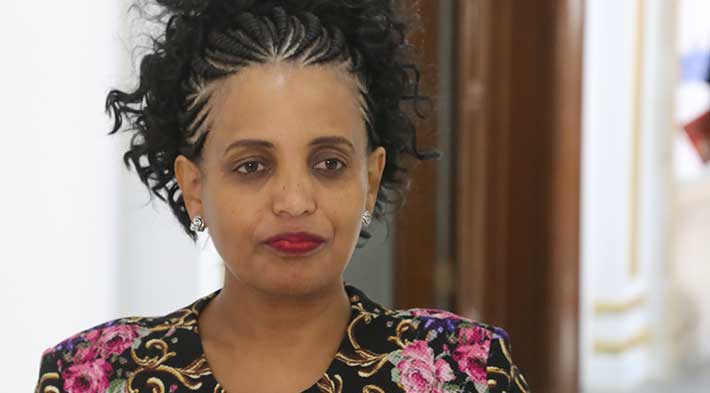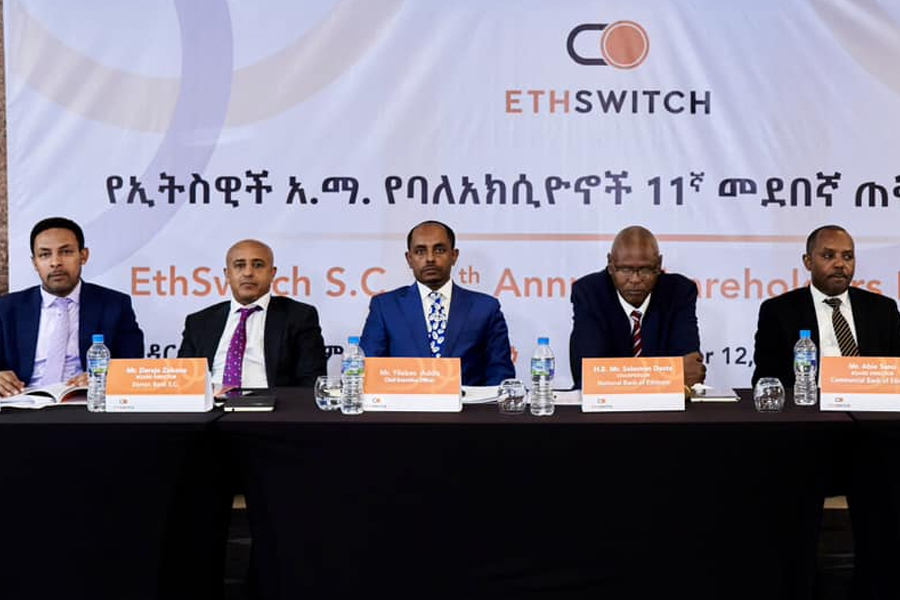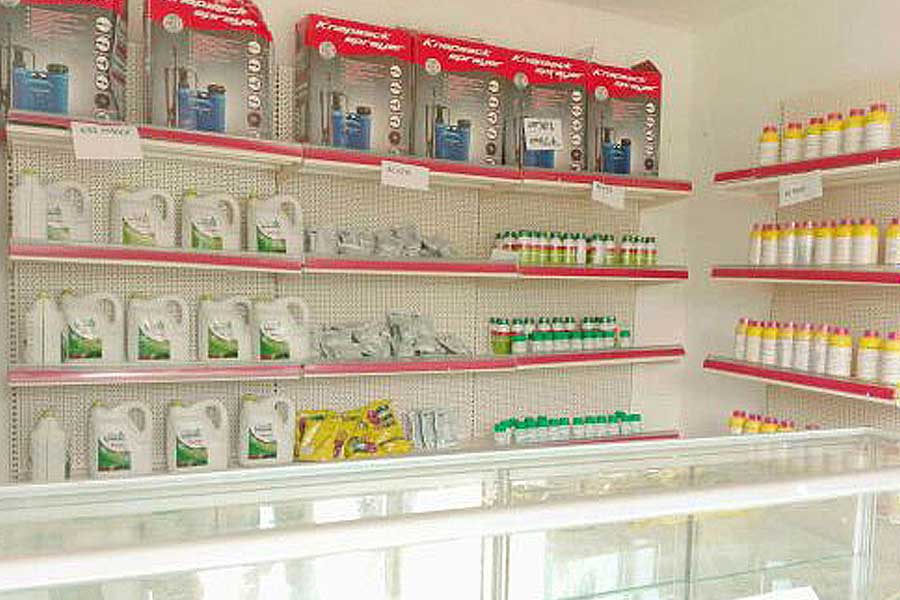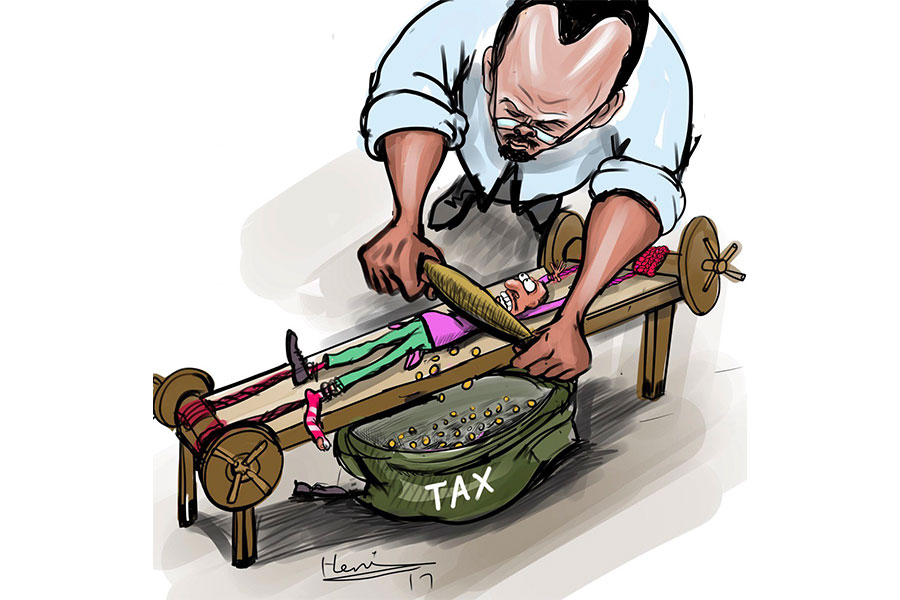
Jun 26 , 2021
By SAMUEL BOGALE ( FORTUNE STAFF WRITER
)
The federal government gears up to replace the tax administration system in use for two decades, with tax authorities hoping the new system will ease taxpayers's burden and allow greater transparency.
Estimated to cost 60 million dollars, the Integrated Tax Administration System (ITAS) implementation, a solution to automate tax collections, is a part of a tax transformation programme launched in 2017 in a partnership between Ethiopia and the United Kingdom. A Tax Transformation Office established under the Ministry of Revenues has been working on the Programme, which will eventually allow taxpayers to settle payments online.
The current system, dubbed Standard Integrated Government Tax Administration System (SIGTAS), is not integrated with other government offices.
The tax regime is one of the areas that impact Ethiopia's score in the World Bank's index for ease of doing business. Ethiopia ranks 159th from 190 countries listed in the World Bank's latest Ease of Doing Business report.
Experts aspire to see the new system establish a single window through which businesses comply with regulations, including obtaining tax identification numbers and business registration certificates.
"We reviewed the systems of over 30 countries before deciding to change," Addis Tamire (MD), head of the Office, told Fortune.
A country that has successfully implemented such a system is Nigeria, where the solution helped reduce costs associated with tax collections and enable real-time tracking of invoices. It is also expected to integrate regional revenue bureaus using different tax collection systems, which experts hope will improve the efficacy of the country's revenues collection.
"The outdated tax system must be replaced to generate more revenues," said Dawit Tadesse, assistant professor of accounting and finance at St. Mary College for eight years.
The federal government collects tax revenues lower than the targeted 15pc of GDP.
Dawit hopes to see the new system improve the government revenues' ratio to the GDP, which has been at an average of 11pc.
"An efficient tax administration should invest at least two percent of the revenue collected," said Dawit, a managing partner at Lead Plus Consultancy, a firm that provides tax advisory services. "In Ethiopia, it is way less than one percent."
The work of transitioning to the new system is not easy, and the Office will likely face financial, infrastructural and skill-related constraints during implementation. The project is still awaiting budget approval from the government, as well as funding from international partners.
“Implementing the new system might take a while as we are working on other procedures in advance,” said Lake Ayalew, minister of Revenues.
Addis disclosed to Fortunethat the process to hire a technology partner is under preparation, and authorities expect to issue tenders in the coming six months.
PUBLISHED ON
Jun 26,2021 [ VOL
22 , NO
1104]


Commentaries | Dec 10,2018

Fortune News | Dec 07,2019

Radar | Nov 16,2024

Fortune News | Mar 23,2022

Fortune News | May 27,2023

Editorial | Jul 19,2025

Radar | Oct 02,2021

Commentaries | Jul 01,2023

Viewpoints | Nov 29,2020

Dec 22 , 2024 . By TIZITA SHEWAFERAW
Charged with transforming colossal state-owned enterprises into modern and competitiv...

Aug 18 , 2024 . By AKSAH ITALO
Although predictable Yonas Zerihun's job in the ride-hailing service is not immune to...

Jul 28 , 2024 . By TIZITA SHEWAFERAW
Unhabitual, perhaps too many, Samuel Gebreyohannes, 38, used to occasionally enjoy a couple of beers at breakfast. However, he recently swit...

Jul 13 , 2024 . By AKSAH ITALO
Investors who rely on tractors, trucks, and field vehicles for commuting, transporting commodities, and f...

Oct 11 , 2025
Ladislas Farago, a roving Associated Press (AP) correspondent, arrived in Ethiopia in...

Oct 4 , 2025
Eyob Tekalegn (PhD) had been in the Governor's chair for only weeks when, on Septembe...

Sep 27 , 2025
Four years into an experiment with “shock therapy” in education, the national moo...

Sep 20 , 2025
Getachew Reda's return to the national stage was always going to stir attention. Once...